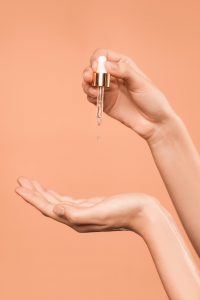Healing Your Skin After Giving Birth: How to Treat Common Postpartum Skin Conditions

Bringing a new life into the world is one of the most beautiful and fulfilling experiences a woman can have. But, as amazing as it is, pregnancy and childbirth can also take a toll on a woman’s body, especially her skin. Postpartum skin conditions are a common occurrence, but they can be treated with the right skincare routine and a few lifestyle changes.
In this blog post, we’ll take a closer look at some of the most common postpartum skin conditions and share tips on how to treat them effectively.
Stretch marks
Stretch marks are one of the most common skin conditions that women experience during pregnancy. They occur when the skin stretches too quickly, and the collagen fibers in the skin tear, leaving behind reddish or purplish marks. While these marks may fade over time, they are permanent.
To treat stretch marks, it’s important to keep the skin moisturized. Applying a moisturizing cream or lotion, like 100% PURE’s powerful Skin Support Stretch Mark Butter, to the affected area can help reduce the appearance of stretch marks over time. In addition, regular exercise and a healthy diet can also help to minimize the appearance of stretch marks.
Acne
Hormonal changes during pregnancy can cause an increase in oil production, leading to acne breakouts. After giving birth, these hormonal changes can persist, leading to ongoing acne issues.
To treat acne, it’s important to maintain a regular skincare routine. This means cleansing the skin twice a day with a gentle cleanser and using a toner to remove any excess oil. In addition, it’s important to avoid picking at pimples or touching the face, as this can lead to further irritation and scarring.
Dark circles and puffiness
New mothers often experience fatigue and lack of sleep, which can lead to dark circles and puffiness around the eyes. Lack of sleep can also contribute to a dull complexion, making the skin look tired and sallow.
To combat dark circles and puffiness, it’s important to get enough sleep and maintain good sleep hygiene. This means avoiding caffeine and alcohol before bed, establishing a regular sleep schedule, and creating a calming bedtime routine. In addition, using a cool compress or eye cream can also help to reduce puffiness and dark circles.
Melasma
Melasma is a common skin condition that causes brown or grayish patches on the face. It’s caused by an increase in hormones during pregnancy and can persist after giving birth.
To treat melasma, it’s important to protect the skin from the sun’s harmful UV rays. This means wearing broad-spectrum sunscreen with an SPF of 30 or higher and avoiding prolonged sun exposure. In addition, using a skin brightening cream containing ingredients such as vitamin C and kojic acid can help to reduce the appearance of melasma.
Dry skin
During pregnancy, the body produces more blood to support the growing fetus, which can lead to dehydrated skin. After giving birth, the body returns to its normal state, and the skin may become dry and flaky.
To treat dry skin, it’s important to moisturize regularly. This means applying a moisturizing cream or lotion to the skin after bathing or showering. In addition, using a humidifier in the home can also help to add moisture to the air, which can benefit the skin.
Hair Loss
Postpartum hair loss is a common occurrence and is caused by hormonal changes in the body. Many women experience thinning hair or bald spots after giving birth.
To treat postpartum hair loss, it’s important to maintain a healthy diet and to take supplements containing vitamins such as biotin and folic acid. In addition, avoiding harsh hair treatments and using gentle hair products can help to minimize further hair loss.

It’s important to note that postpartum skin conditions can vary from person to person and may require different treatments. If you’re experiencing persistent or severe skin issues, it’s always a good idea to consult a dermatologist or healthcare provider for guidance.
Taking care of your skin after giving birth is not only important for your physical health, but can also help to boost your self-esteem and confidence. By giving yourself the time and attention you need, you can help to heal your skin and feel your best during this exciting and challenging time.

